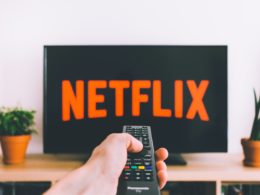On Wednesday, October 9, the Brooklyn Entertainment & Sports Law Society (“BESLS”) held its annual Film and Television panel titled “Behind the Spotlight: Navigating the Legal Landscape for Child Actors’ Rights in the Wake of ‘Quiet on Set’.”
This year’s panel was moderated by Brooklyn Law School Professor of Clinical Law and Director of Externship Programs Jodi Balsam, BESLS’s faculty advisor. Nationally recognized for her expertise, Prof. Balsam is a co-author of a leading sports law casebook, an on-air legal analyst for NBC Sports/The Golf Channel, and teaches New York City’s only specialized sports law externship program.
The Panelists
Alice Simmons is senior director of Business and Legal Affairs at Concord Music, a worldwide leader in music publishing, sound recordings, and theatrical performance rights. Concord Music represents various music labels including KIDZ BOP, the #1 children’s music brand that has sold millions of records and generated billions of streams since being founded in 2001.
Simon Pulman is a partner and co-chair of Media and Entertainment at Pryor Cashman LLP. He has received recognition for his extensive experience in entertainment and media law, particularly in business affairs and rights transactions for television, film, podcasts, and interactive clients. He has provided innovative counsel for clients with major buyers such as Netflix, Amazon, Apple, NBC and many more. He was recognized by Best Lawyers in America in Entertainment Law – Motion Pictures and Television for 2024-25.
Novika Ishar is a partner and Chair of Entertainment Law at Romano Law PLLC. She is recognized for her expertise on various entertainment, intellectual property, and corporate matters. She advises a range of clients in the film, television, gaming, and music industries, as well as at all stages of content creation. She has widespread experience in assisting studios, production companies, and individual talent. She has been recognized by Best Lawyers: Ones to Watch in America in 2025.
Legal Superstars: Protecting Child Stars’ Rights
After introductions about the panelists’ path to work in the entertainment field, they moved on to discuss the most important factors considered when they are informed that a project they are working on involves child entertainment. They noted that it is crucial to ensure that the environment a child entertainer enters is “legally competent” and remains so during the duration of filming. The panelists also mentioned the importance of striking a balance between parental wants and the child’s needs and providing a controlled and safe environment for the child entertainers. Mr. Pulman emphasized that the goal is to not be kept up at night and to achieve that goal by being proactive when working on these types of projects. He further stressed the importance of issue-spotting in scripts early on when the child is staffed on a television show or film as well as having written notice that details any issues and risks that may be involved. Ms. Ishar noted the importance of requesting the budget to ensure that there is adequate room for the additional requirements needed when working with child entertainers, such as employing tutors to be on set.
Navigating the Evolving Scope of Child Stars
The conversation then turned to the recently emerged field of “kidfluencers,” including the scope of child entertainers in the relatively new world of social media and YouTube. The lack of legal jurisdiction over children who post online rather than work on traditional television or movie sets leaves internet child entertainers at risk of exploitation. The panelists discussed how children are being employed by their parents who then use their name, image, and likeness to create posts and generate revenue. In film and television, parents are required to open a Coogan Account, which safeguards a portion of a child entertainer’s earnings until they reach adulthood. However, there is no requirement for online media, and this lack of legal oversight leaves a major gap in the financial protections these “kidfluencers” are afforded.
Staying Current in the New Age of Social Media: Areas for Improvement
Finally, the panelists discussed how societal shifts have moved faster than the laws regarding children on social media and YouTube. Ms. Ishar explained that these issues are being worked out in real time, while Ms. Simmons brought up the newly passed Illinois legislation seeking to protect child influencers by establishing standards to ensure they receive a fair percentage of their overall compensation for their participation in social media posts. Illinois Senate Bill 1782, which took effect this past summer, is the first of its kind and other states are expected to follow suit. However, the panelists were wary of the actual enforceability of such laws. Mr. Pulman emphasized that an impending legal reckoning will occur regarding internet child influencers who are working in a world where there is no legal scrutiny to protect them from exploitation. He further discussed how complex of an opportunity this space is for young lawyers to display their knowledge of social media, such as TikTok and YouTube, when presented with these types of cases in the future.
BESLS and everyone in attendance would like to thank our incredible moderator and panelists for an exciting and insightful panel!
By: Chloe Barosy & Alyssa Baumel
Chloe Barosy and Alyssa Baumel are both members of Brooklyn Law School’s Class of 2027.




